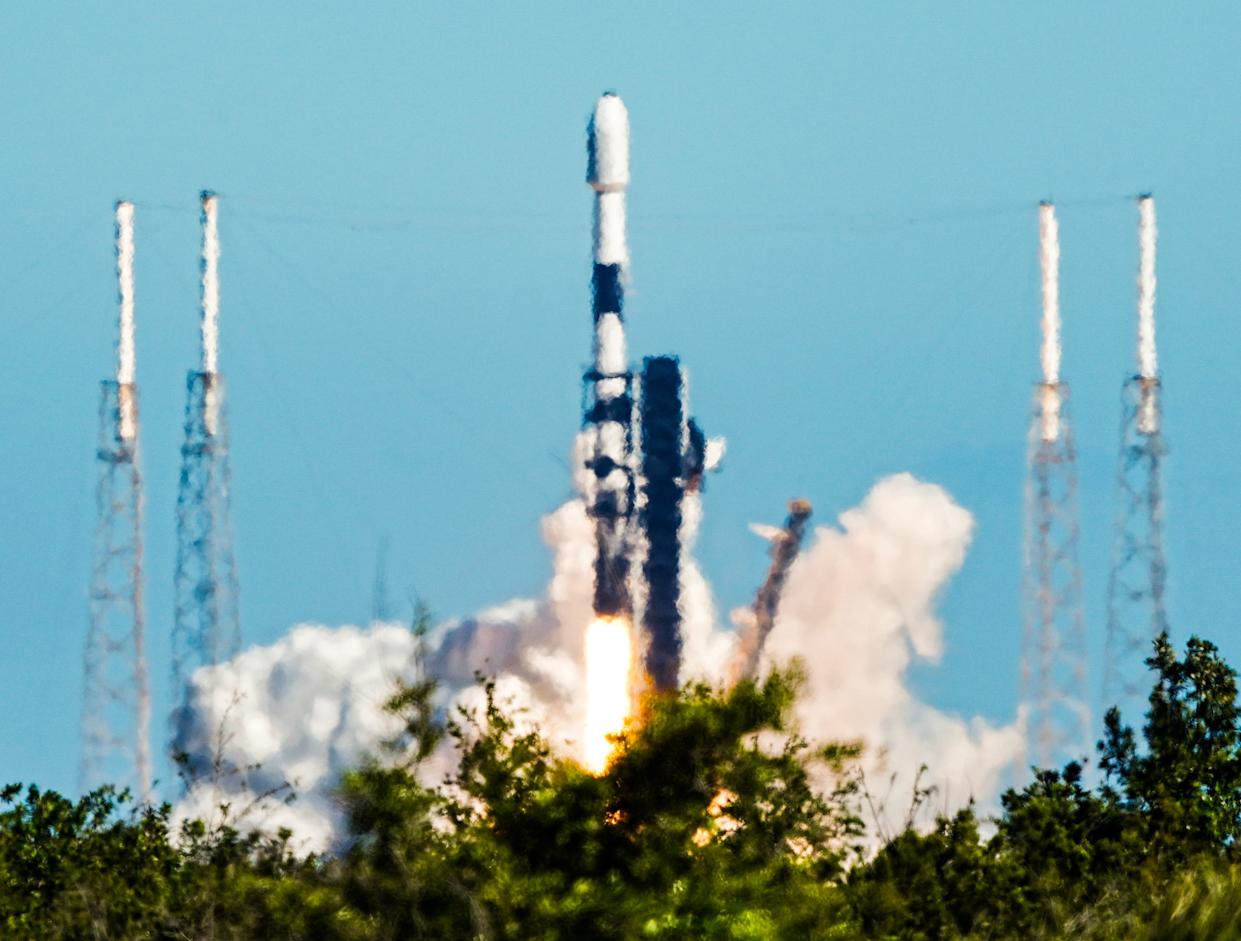A SpaceX launch is happening this afternoon. Spectators should watch for changing weather. Clouds, showers, and storms are possible. These come from a seabreeze pattern in East-Central Florida.
Launch Details: Falcon 9 Mission
SpaceX aims for a launch window today. It runs from 1:19 p.m. to 5:50 p.m. A Falcon 9 rocket will launch. It will lift off from Launch Complex 40. This is at Cape Canaveral Space Force Station. An FAA advisory confirms these plans.
Starlink Satellites and Booster Landing
The Falcon 9 carries Starlink satellites. These are broadband satellites. They will go into low-Earth orbit. This is for the Starlink 12-22 mission. The rocket will fly southeast. Its first-stage booster will then land. It will land on a SpaceX drone ship at sea.
Weather Outlook for Launch
The Space Force’s 45th Weather Squadron gave a forecast. They predicted 80% good weather early in the window. But, these odds drop to 65% by the end. Cumulus clouds are a concern. Anvil clouds are also a threat. Surface electric fields pose risks.
The weather squadron issued a warning. They expect “a more active seabreeze convective pattern.” Showers will form along the seabreeze. This will happen in the early afternoon. More intense thunderstorms will develop inland. This is expected by mid-to-late afternoon.
How to Watch Live
Check FLORIDA TODAY Space Team for updates. Live launch coverage will be on their page. Updates start about 90 minutes before the window opens. SpaceX’s live webcast begins about five minutes before liftoff. Look for it posted online near the countdown clock.
SpaceX sent another a batch of Starlink satellites into low Earth orbit aboard a Falcon 9 rocket Friday afternoon. The mission also had the distinction of being the company’s 450th successful booster landing.
Liftoff from Space Launch Complex 4 East at Vandenberg Space Force Base in California happened at 3:32 p.m. PDT (6:32 p.m. EDT, 2232 UTC).
The mission, dubbed Starlink 11-16, carried 27 satellites onboard. With this flight, SpaceX has launched a total of 8,700 Starlink satellites into orbit, of which more than 7,500 remain in orbit, according to expert orbital tracker, Jonathan McDowell.








